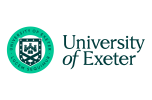© Pint of Science, 2025. All rights reserved.
We study the natural world in part to understand and reverse engineer nature’s designs. The running theme of this evening is designing materials with specific functions, whether that’s to ensure a refreshing shower (Dr Charlie Wand) or to build an invisibility cloak (Joe Shields)! To round out the first night we will be treated to fascinating hands-on demonstrations of everyday optics effects by Exeter Photonics Society.
What do computers have to do with shower gel?
Charlie Wand
(Lecturer in Natural Sciences)
Shower gel and computers are two seemingly disparate topics. In this talk, we'll see how computer models are being used to understand the molecular properties of shower gels, shampoos and other similar everyday products. The main ingredients in shower gels leads to the formation of a rich variety of structures at the nanoscale. However, it is very difficult to predict the type of structure formed from compositional knowledge alone. Therefore, we have developed a computer model to predict the structures of different compositions and links to the physical properties of a surfactant-based system.
What’s Meta about Metamaterials?
Joe Shields
(Postdoctoral Researcher)
Metamaterials are designed structures that allow for the control of waves in ways not possible with conventional materials. They have the potential to have a large impact on many areas of our modern world including technologies such as invisibility cloaks, ultra-thin lenses, revolutionary forms of computing, and systems for earthquake protection. This talk will give a whistle-stop tour of the area of metamaterials and highlight some of the work done in this area at the University of Exeter.
Light waves are all around us
Exeter Photonics Society
(Society)
Have you ever wondered why the sky changes colour at sunset? Or why 3D glasses change the colour of a beetle? Light waves are all around us! We hope to demonstrate some of the main effects that cause these effects, in a relaxed and fun way, with a focus on exploring and inspiring questions, rather than dictating answers.
Map data © OpenStreetMap contributors.
